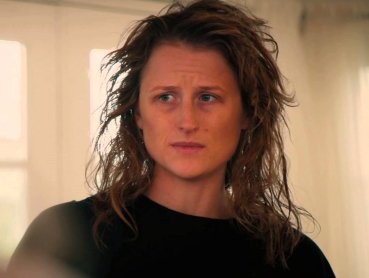Film Review| Ricki and the Flash – This Cinema-Goer is Not Impressed
Can’t you just call in sick and skip therapy?
No, mom, I am sick, that’s why I’m in therapy.
The cinema-goer gets it. Ricki and the Flash is a film-allegory about the sick state of family life in the USA, and maybe even in the world, today. Yet the cinema-goer finds nothing to care about. Not the down-at-heel pub rocker, Ricki, played thoroughly well by Meryl Streep. Or the recently jilted daughter, played by Ms. Streep’s own natural daughter, Mamie Gummer. There is such a forced confection of family relations that the cinema-goer experiences – not interest or complexity – but apathy.
Then there’s Kevin Kline, who played the mercurial Otto in A Fish Called Wanda, lazing through his role like a satrap in his opulent mansion, while being told by his first wife that he always worked too hard. The cinema-goer doesn’t see him do a tap or break a sweat. He organises a disastrous family reunion dinner in an overly-lit high-end restaurant, with packed neighbouring tables crowded about. Petulance and immaturity, rather than comedy, are the dominant vibes in the scene. Is Dad missing something? He doesn’t even offer Ricki a cup of coffee on arriving at his house, in response to their daughter’s collapse. And he asked her to come from her L.A. scrape-a-life, in the first place.

The cinema-goer resorts to wondering how the animal wranglers got the big, white poodle to do the many things s/he does without seeming to be acting. S/he’s as effortless as Brando.
There is a good band on view, doing covers of rock and roll Americana, including the works of Tom Petty, Edgar Winter, Bruce Springsteen and others. As soon as a wedding is mentioned, the cinema-goer knows the finale will include the band on stage as Mom (Meryl Steep) gains some redemption though rock and roll lyrics of love in place of actually doing some loving. She is as selfish as an amoeba. Her guitar-playing lover sells his prized instrument to fund the wedding trip. The cinema-goer considers him a love-struck schmuck, for martyring himself on Ricki the Narcissist, who, despite her protestations, is not looking for love but simply for attention.
The moral seems to be that some of us follow our dreams into family and business and make a great success of things, others follow our dreams into rock and roll and perdition, but what matters is following your dream, each one an approved version of the American Dream, while you keep the flag wrapped around you at all times. In order to give the Meryl Streep character some depth, she’s presented as a blue-collar food-store worker, with a Stars and Stripes tattoo on her back and an altar at home to her brother who was killed in Vietnam. The film opens with the band doing Tom Petty’s American Girl, a classic of aspirations and dreams crashed into oblivion, given a marvellous rock treatment, that makes everything pathetically alright and allows Ricki to be mildly jingoistic about America. Is she being ironic? Doubtful.
There is a bounteous African-American second wife, a gay son who looks even more preppy than his straight brother, affronted in-laws, and a loveable, dotty mother-in-law, all of whom look like they stepped out of the window of a Tommy Hilfiger shop.

The effect is not ‘feel-good’ but rather ‘feel-nothing’.
The cinema-goer experiences ennui and dismay. Is this it? Is this the best that industrial film-making on a grand scale, coming out of Hollywood, can produce? The cinema-goer’s companion notes there is no story, never any sense of drama, nor of something being at stake in the lives of the characters on the screen. Both cinema-goers burst out laughing, not the intended effect sought by the film-makers, when Mom says ‘walk on’ to the tear-filled daughter on the trip up the aisle at her brother’s wedding. It sounded like Johnny Cash enforcedly crossed with Val Doonican.
On leaving the cinema both agree they made a mistake in choosing to see Ricki and the Flash. The chill in the air reminds them of a great Autumn film they once saw. The conversation tests the cast list, the film title and the outline of the story. All tests are passed with flying colours: glorious golds, flaming reds, searing pinks and sumptuous ochres. The film is Far from Heaven, with Julianne Moore, Denis Quaid and Denis Haysbert and a lush orchestral score by Elmer Bernstein. It might be time to view it again. A decent story. Fine acting and cinematography. Something at stake.
The music is good in both films, but in Far from Heaven there is more than cover versions. That’s it. Watching Ricki and the Flash, the cinema-goer is left with the feeling of watching a cover version of something that wasn’t very good in the first place.
Featured image credit: telegraph.co.uk

